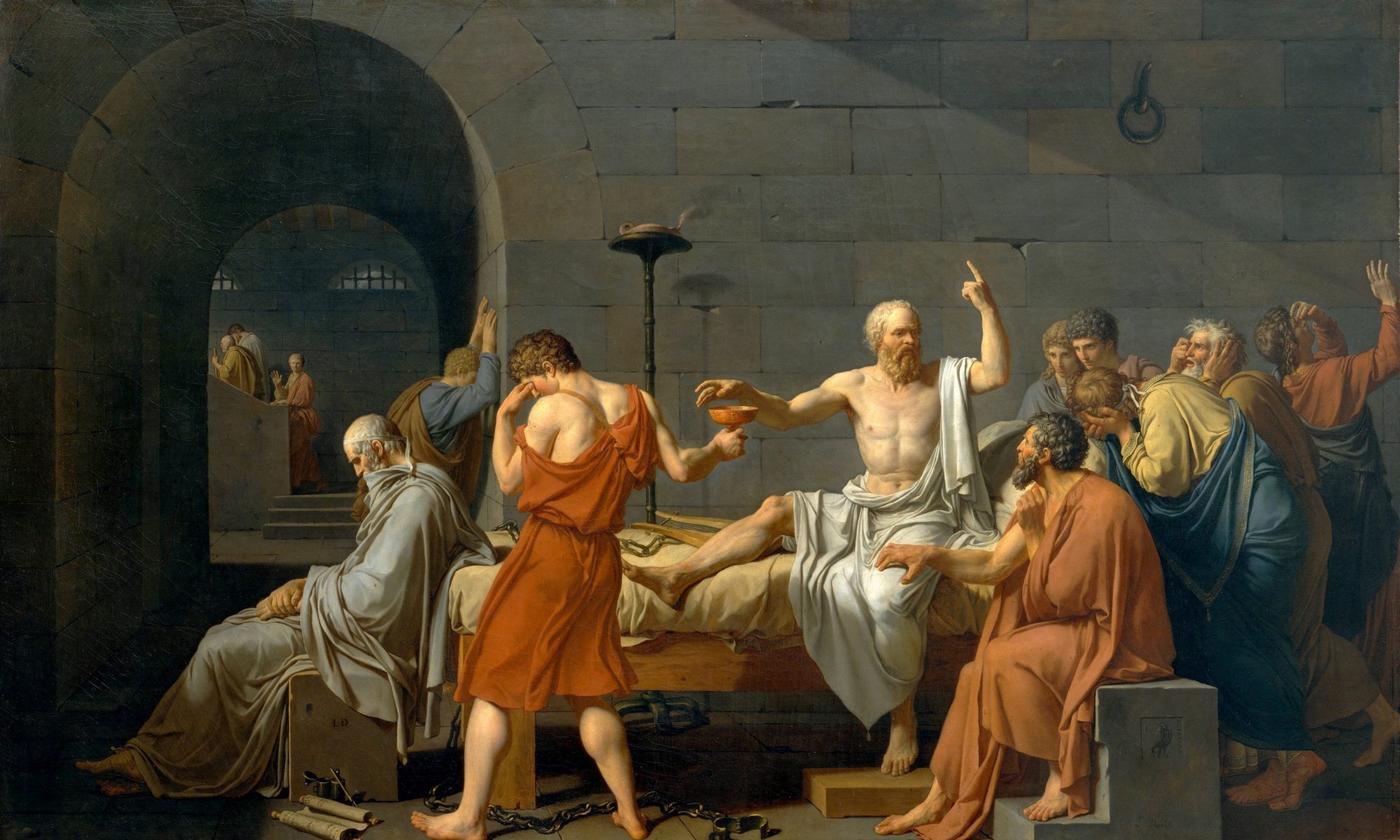Science and Self-Knowledge
In class this year, I will be exploring the relationship between science and self-knowledge. If anything suggests that science has a horizon, that what science can make and do is somewhere limited, it is the human self. Formed as we are by particular circumstances irretrievably lost to time, we seem fated, tragically, never to know who we are. Yet, if we could reduce human nature to such formulae as we find in physics, would we not cease to be surprising and remarkable—would we still be interesting, worthy of study? Would we even be recognizably human, and would not this loss of humanity be the real tragedy? On the contrary, it seems that what makes you you refuses to bend to mathematics and method but rather stands alone, irreducibly itself. I’ll be exploring these questions using works by Foucault, Plato, Descartes, Freud, and Woody Allen.
Past Courses Taught
2018-’19
- “Plato”
- “The Birth of Philosophy in the Ancient World”
- “Justice”
- “Ethics and Society”
- “Introduction to Philosophy”
2017-’18
- “Rousseau’s Political Thought”
- “Nietzsche and 20th Century Thought”
- “Herodotus’ Histories”
- “Dreams and the Philosophy of the Unconscious”
- “Philosophy and Film” (twice)
- “Ethics and Society” (twice)
- “Business Ethics” (twice)
2016-’17
- “Plato’s Shorter Dialogues I”
- “Plato’s Shorter Dialogues II”
- “Plato’s Shorter Dialogues III”
- “History of Ancient Philosophy: Honors”
- “Introduction to Philosophy” (three sections)
- “Ancient Philosophy”
- “Greek Mythology through Hesiod”
2015-’16
- “Sophocles’ Theban Plays I: Oedipus Tyrannus”
- “Sophocles’ Theban Plays II: Oedipus at Colonus”
- “Sophocles’ Theban Plays III: Antigone”
- “The Problem of Socrates I: Philosopher or Sophist?”
- “The Problem of Socrates II: Philosopher or Statesman?”
- “Ethics and Society”
2014-’15
- “The Discovery of Being in Pre-Socratic Philosophy”
- “The Recovery of Being in Nietzsche and Heidegger”
- “What is Virtue? An Introduction to Philosophy” (Year long)
2013-’14
- “Special Topic: Film and Philosophy”
- “Special Topic: Origins of Western Philosophy”
- “Introduction to Philosophy”
- “20th Century Philosophy”
2011-’12
- “Plato” (including an honors version)
- “History of Ancient Philosophy”
2009-’10
- “Introduction to Philosophy” (two sections)
2008-’09 (teaching assistant)
- “Contemporary European Philosophy”
- “Elementary Symbolic Logic”
Projects Guided
- Alienation in Psychology and Philosophy (including Freud, Foucault, Marx, and Nietzsche)
- Aristophanes’ Birds
- Aristotle’s Metaphysics Z
- Aristotle’s Nicomachean Ethics (selections)
- Aristotle’s On Poetics and Alexander Scriabin’s piano works (selections)
- Aristotle’s On Poetics (twice)
- Aristotle and Bacon on causality
- Bacon’s New Organon (selections)
- The Book of Judges
- Buster Keaton’s Sherlock Jr. and College
- Critiques of Metaphysics (Wittgenstein and Nietzsche)
- Descartes’ Meditations on First Philosophy
- Euclidean and Non-Euclidean Geometry (Euclid’s Elements I, Lobachevsky’s Geometrical Investigations on the Theory of Parallels, Khayyam on Euclid’s fifth postulate, and Einstein’s Relativity: The General and Special Theory [selections])
- Foucault’s History of Sexuality (selections)
- Heidegger’s Being and Time, sections on temporality
- Heidegger (and Fink) on Heraclitus
- Hesiod’s Theogony
- Homer’s Iliad
- Kant’s Critique of the Power of Judgment
- Locke and Arendt on Violence and Politics
- Marx’ Economic and Philosophic Manuscripts of 1844
- Memory and thought (various readings)
- Nietzsche’s The Birth of Tragedy (three times)
- Nietzsche’s On the Genealogy of Morality (twice)
- Nietzsche’s Thus Spoke Zarathustra, “Prologue,” and Nicholas Ray’s Bigger than Life
- Nietzsche’s Thus Spoke Zarathustra and Kubrick’s 2001: A Space Odyssey
- Nietzsche’s Thus Spoke Zarathustra (twice)
- Nietzsche’s Twilight of the Idols (twice)
- Nietzsche on liberal democracy
- Nietzsche on strong vs. weak types
- Nietzsche and Freud (twice)
- Plato’s Apology of Socrates and Meno
- Plato’s Euthyphro
- Plato’s Theages, Meno, and Apology of Socrates
- Plato’s Hippias Major and Dialectical Behavior Therapy
- Plato’s Hippias Major
- Plato’s Parmenides
- Plato’s Statesman
- Plato’s Symposium (twice)
- Rousseau’s Of the Social Contract (twice)
- Rousseau’s Reveries of a Solitary Walker
- Smith’s Theory of Moral Sentiments
- Steinbeck’s The Grapes of Wrath and The Book of Exodus (with selections from Rousseau)
- Wittgenstein’s Blue Book (twice)
- Wittgenstein’s Philosophical Investigations
- Woody Allen on love and mortality
